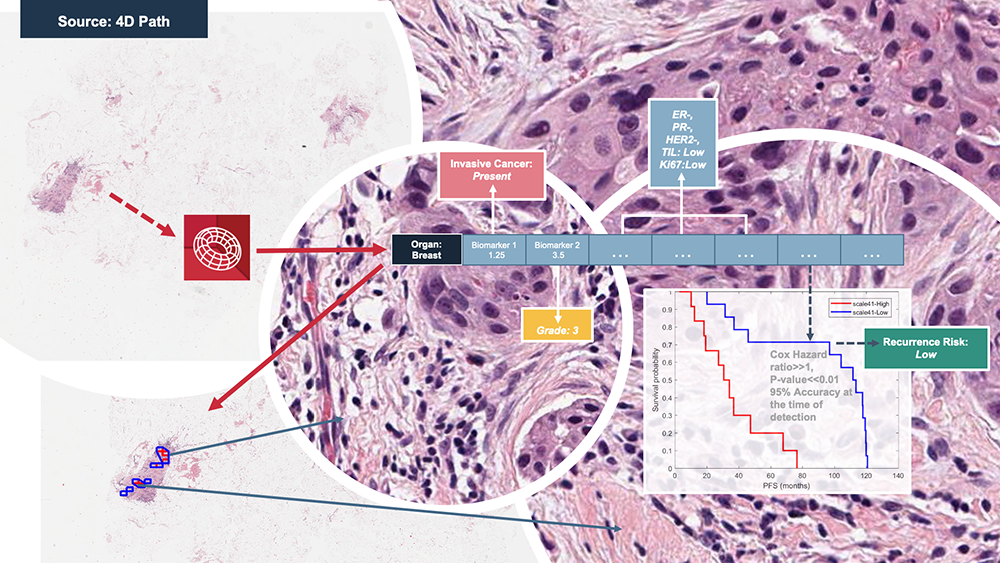 The precision oncology company 4D Path has committed to partnering with the U.K.-based University of Leeds at least until 2027.
The precision oncology company 4D Path has committed to partnering with the U.K.-based University of Leeds at least until 2027.
The two entities are already collaborators, having worked together on three completed breast cancer clinical trials. In particular, researchers at the University of Leeds have used 4D Path’s Q-plasia OncoReader Breast software to analyze data from more than 1,000 patients over the past three years.
4D Path says its technology can help in various levels in clinical trials starting from patient recruitment for therapy eligibility, which can be challenging for rare mutations, to designing trials for therapy benefit and potentially suggesting drug target screens.
The company’s technology supports biomarker profiling and stratification from hematoxylin and eosin (H&E) whole slide biopsy and resection images. The platform can help researchers identify the cancer subtype, grade, presence of human epidermal growth factor receptor 2 (HER2) and hormone receptor status from H&E-stained whole-slide biopsy images.

4D Q-plasia OncoReader Breast sample workflow and output. [Image courtesy of 4D Path]
The company’s 4D Q-Plasia OncoReader platform reads generic and target-specific biologic signatures hidden in H&E stained tissue along with quantification of tumor heterogeneity. “This puts the technology in a unique position to stratify patients for treatment efficacy and risk of recurrence as early as from the pre-treatment biopsy,” Dasgupta said.
The University of Leeds will extend its research to focus on cancers affecting the skin, lung, head and neck.
4D Path’s cloud-based technology has won FDA Breakthrough Device designation late last year.
When asked what brought the University of Leeds and 4D Path together, Dr. Nic Orsi, chief pathologist for 4D Path, said the two organizations share a mission to optimize clinical diagnostics, improve access to healthcare and develop novel strategies for improving cancer patient treatment selection and outcome.
“This thriving relationship capitalizes on combining the University of Leeds’ expertise in digital pathology with 4D Path’s unique technology,” said Orsi, who is also a clinical histopathologist and biologist from the University of Leeds with a history of using digital pathology in research. “We have achieved ground-breaking results in breast cancer and are now making major inroads into a range of other malignancies, including skin, lung, gynecological and head and neck cancers,” Orsi added.
Filed Under: clinical trials, Drug Discovery, Oncology





Tell Us What You Think!
You must be logged in to post a comment.